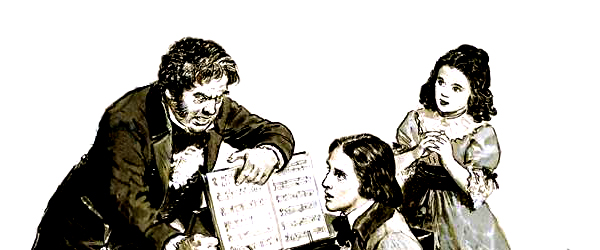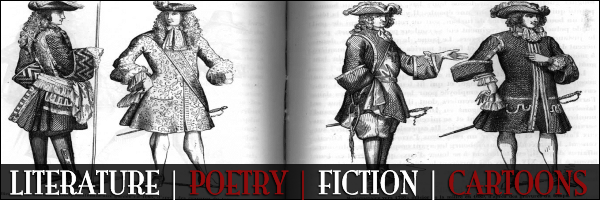
Wittgenstein’s Box
Fiction, LiteratureThe box that arrived on Ludwig Wittgenstein’s doorstep the winter of 1921 must have been a mistake. He had been in Trattenbach to teach grammar and mathematics at the town’s only elementary school since the previous year, this after having completed the Tractatus Logico Philosophicus, his only philosophical work, and the townspeople found him to be a wretched human being.
He found the town and landscape picaresque. Small and poor, austere, exactly what my sensibilities require, he had written to his friend Bertrand. A letter he wrote to his friend Frege, said, I find the people here, with their small-minded concerns and blind faith in Christ, on the whole slovenly, stupid, and morally repugnant.
The townspeople referred to him as Fremd (strange), his students thought him cruel and called him asinus asinorum (Latin for jackass), the young women found him indecent, and even Jurgen, the headmaster at the elementary school had misgivings about him, what with his eccentricities.
Looking disheveled, his eyes thick from insomnia, Herr Wittgenstein would stare at the stars for hours from the kitchen window of his rented room. Returning from school, he often stopped to scribble equations on the side of buildings with chalk. He took long muttering walks around the countryside, often throwing up his hands in a gesture of prayer, turning his face to the heavens, exclaiming Lieb! Lieb! There were rumors he was a vegetarian, but also drank pig’s blood, and some said he swam naked in the frigid ponds in and around Trattenbach. These rumors were unfounded.
Over the months, stories of his eccentric behavior collected. One afternoon, while playing a Mozart concerto with some of the more talented boys at the school, Herr Wittgenstein himself on clarinet, he repeated the same song tirelessly, hour upon hour. When Jurgen entered and suggested the little orchestra play a dance tune, something to get their feet tapping, Herr Wittgenstein exclaimed Krautsalat! Krautsalat!Then he stormed from the room as if someone had urinated on his face. That story was true.
Music is an absolute pleasure, a god’s gift, he wrote to Bertrand. He wrote to Frege, Here even music sounds ugly. The air is satanic.
During class, his notoriety increased with the velocity of each lesson. He raged at his students’ stupidity. He threw up his arms, pulled his hair and clawed his face, before slumping down into his chair. Crossing his arms, he muttered obscenities to himself, then fell asleep.
Quickly his methods of discipline and punishment became too extreme for the simple villagers, for he demanded from his six and seven year old students a facility for algebra and geometry their small brains were too immature to comprehend. He boxed their ears and pulled their hair, sending them shrieking from the class. He cracked wrists with wooden rulers while calling the little peasants names (ugly, imbecilic), then cursing his damned luck for having to teach these animals.
He wrote to Bertrand, I am lonely and mad for conversation. He wrote to Frege, My only conversation is with the light.
Though the villagers reviled him, they respected this strange rich baron who many regarded as a genius. They also wondered why he had come to live amongst them, for at the time the Wittgensteins were one of the wealthiest families in Austria.
Now here was a gift, for surely it was a gift, a box wrapped neatly in gold foil with a blue bow affixed to the top. He toed it. It felt heavy. He picked it up and weighed it in his hands. It must be five and one quarter solid pounds. Each edge, plumb as an arrow. The bow, constructed of strips of taffeta, looked meticulously tied, right down to the knot, which he considered at some length and decided was a double overhand. There was no mistake. The card taped to the side said only Schoolmaster L. Wittgenstein. There was nothing else written on the box indicating who it was from, or why?
Still tentative, still unsure, he quelled his displeasure and lifted the box. He pressed it close to his ears. Nothing ticked inside, so he ruled out the possibility of a bomb or a cuckoo clock. He shook the box, but nothing rattled, so he ruled out bottled poisons. Cradling it in his arms, he carried it into the room and set it on his washstand. He slinked towards his straw mattress, combed his fingers through his graying hair, then let out a sigh. After crossing and uncrossing his legs a dozen times, he leaned forward in contemplation.
His was an austere room, comprised of a single bed pushed against the wall, a single washstand, a single chair, and a single circular table. The walls were drab and bare and gray. The brown wool curtains were undrawn. The crosshatched window perpendicular to his bed offered a view of the rolling fields, green as jade in the summers, but now white with snow. A recent snowstorm had rendered the landscape featureless. While he sat, one elbow on his crossed knee, two fingers tapping his faintly moist lips, sunlight broke through the clouds. At the exact moment he sat considering the gift, a beam of light pierced through his window, illuminated the box with such a brightness it glowed like a small sun. Spring has come. Winter is defeated.
As if summoned to God, Wittgenstein fell to his knees, tented his hands in prayer, and cried Lieb! Lieb! Lieb!























